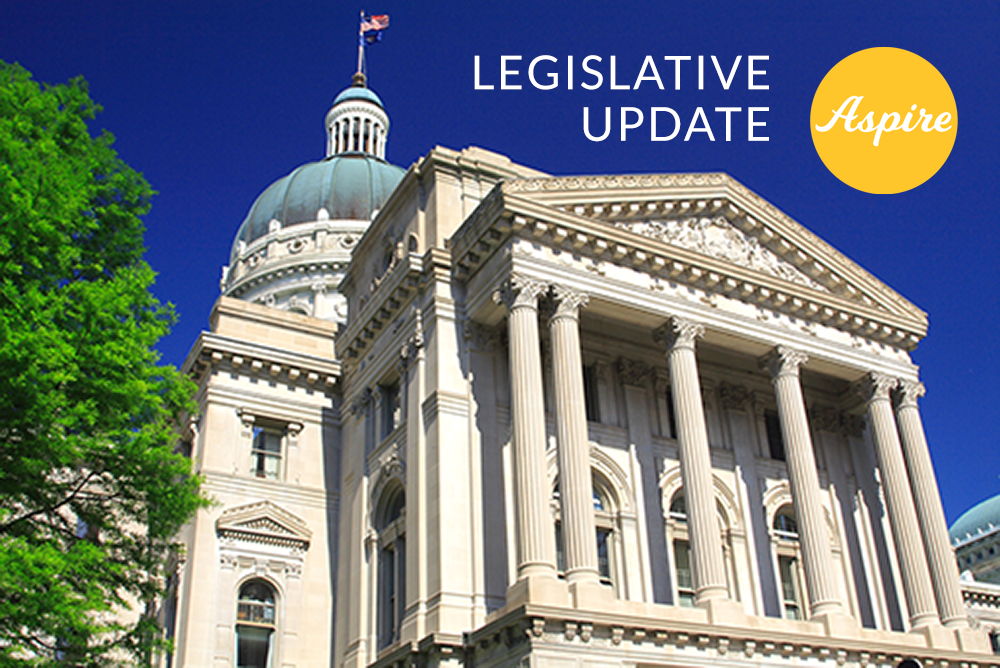Legislative Update Week 9: Conference Committees and the Wheels on the Bus

End of the Road… Conference Committee Style
The end of the marathon 2020 legislative session is near. The House and Senate are past their bill reading deadlines and our days (and nights) are now spent focusing on concurrence votes and conference committees. As a reminder, once a bill has passed both the House and Senate chamber, it goes back to the original author. The author has two choices; concur or dissent.
The author’s first option is to concur (agree to) the bill changes made in the second chamber and file a concurrence motion for a vote in their own chamber. If the bill passes the concurrence vote, it goes to the governor for signature. The author’s second option is to dissent (disagree) on the changes made in the second chamber and send the bill to a conference committee, which are smaller committees to negotiate and agree upon the final version of the bill. If the conference committee agrees to a final version, it then sends the bill back for a concurrence vote in both the House and Senate before sending it to the governor to sign.
The public is given one hour’s notice of conference committee hearings, so Aspire’s lobbyist is watching the postings morning and night to attend to ensure we are attending the relevant hearings.
The General Assembly still plans to finish the session by (hopefully) no later than Wednesday, March 11!
The Wheels on the Bus
If you recall, last week’s bombshell was the local Marion County transit language amended into HB 1279 on Northwest Indiana Transit, including double-tracking the South Shore commuter rail line. As expected, the House author Rep. Ed Soliday (R-Valparaiso) has dissented on the amendment (No. 6). The bill is now being heard in the conference committee.
Aspire opposed this amendment because the language would redirect local Marion County tax revenue from its rightful purpose and delay the development of a robust regional transit system in Central Indiana. If adopted, this amendment would jeopardize plans to implement the planned Blue and Purple rapid bus routes. It also risks implementation of new local route frequency and hours, intended to further improve convenience and access, and better align local routes with the established Red Line.
We support the General Assembly’s fiscal conservativism. This has helped catapult Indiana into the Top 10 best states for business. But we also support transparency, due diligence, and the ability to spend limited dollars on initiatives that will help our workforce grow and thrive.
Marion County is the foundation for an improved system to deliver more connected, convenient, frequent public transportation to the Indy region, including into Johnson County. This amendment obstructs progress on regional transit development. (There is also a question about the amendment’s legality because bonding has already been issued against the revenue.)
Negotiations are actively underway between the House and Senate on how to enforce the original law’s private funding match requirement and not kill IndyGo’s increased ridership and system enhancement momentum.
Will legislators find a way to keep the wheels on the bus going round and round? Stay tuned this week.
Attorney General Amendment Moving
Representative Tim Wesco (R-Elkhart), in a surprise move, offered a second reading amendment to SB 178 that would prevent anyone having been disbarred or had their law license suspended for 30 or more days to run for the office of Attorney General. This comes in response to current Attorney General Curtis Hill’s recent disciplinary hearing recommendation that his law license is suspended for at least 60 days without automatic reinstatement after allegations that he groped four women in 2018. The House adopted the amendment by a vote of 84-9. After calling for his resignation in 2018, Gov. Eric Holcomb endorsed the legislative proposal last week. The author, Sen. Greg Walker who represents much of Johnson County, has dissented on the bill. The fate of this language will be determined this week in the conference committee.
Hospital Site of Service Language Stripped
The language was removed from HB 1004 this week that would reduce reimbursement to hospitals for satellite center services. Originally added to address the argument that overhead cost structure was much less than at a traditional hospital setting, hospital CEOs and administrators, led by the Indiana Hospital Association, explained that lower reimbursements would force hospitals to discontinue services and reduce staff – especially in rural areas. The language was removed unanimously by a voice vote.
Tobacco Bills
Tobacco/vaping cessation bill SB 1 passed the House by a vote of 78-16 last week. To date, the author Sen. Ed Charbonneau (R-Valparaiso) has neither dissented nor concurred. Meanwhile, HB 1006 passed the Senate by a vote of 39-11. The bill’s author, Rep. Cindy Kirchhofer (R-Indianapolis), has neither dissented nor concurred. It is anticipated the differences between the two bills will be worked out in conference committee, or one bill will be concurred upon and be sent to the governor for signature.
Regional Development
SB 350 Regional Development by Sen. Travis Holdman (R-Markle) was amended on the House floor last week, changing the MPO language to include political subdivisions in a county with over 700,000 in population stating if Marion County and the city of Indianapolis were required to become part of the RDA, they do not incur any financial obligation. The bill passed the House by a vote of 94-0. Sen. Holdman dissented on the bill, sending it to conference committee this week. He indicated the committee is likely to make changes before it is final.
Important Upcoming Date
Wednesday, March 11 – Anticipated Sine Die Date
